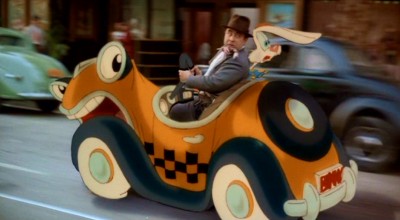California's Lawmakers Support American Ingenuity?
California changes the law to make room for new technology.
-
Tools:
In these grim and oppressive times, it's nice to see an occasional ray of light, sanity, and good old fashioned American common sense. And in California of all places! CNBC reports:
The California state legislature just ... approv[ed] a bill paving the way for driverless cars to be allowed on Golden State freeways.
The bill, authored by State Senator Alex Padilla (D-Van Nuys), was passed by the state Assembly on Wednesday and then given the overwhelming thumbs up by the state Senate the following day.
Dead Hand of Government vs Invisible Hand of Market
For just about as long as there have been traffic jams, people have dreamed of ways not to waste their time that way. The best imaginary solutions - Star Trek teleporters and Jetson-style flying cars - aren't much closer to reality than when they were first concocted.
Modern computer and robotics technology offer the promise of the next best thing: a car that does the driving for you. Sure, you're still stuck in the traffic jam, but at least you can get useful work done or even take a nap.
|
|
| Who's really driving here? |
|---|
The trouble is, there is well over a century of regulation and law designed around the assumption that there's a human being driving the car at all times, and just as much case-law precedent laying out liability. If you're asleep in a self-driving car and you get into a crash, who's to blame? You for being asleep? The car manufacturer? The computer manufacturer? Nobody, and your insurance company picks up the tab?
Until these questions are answered, no wise investor would dare risk their money trying to sell a self-driving car and few people with the resources to afford the Mark One model would accept the risk of a monster lawsuit either. The obstacle to driverless cars is no longer technology, but the regulatory system.
And there, we thought, the matter would likely lie indefinitely. Earlier this year, Nevada approved an experimental license for Google's autonomous car, but it's not really worth starting mass production of something expensive and complex that can only be legally sold to Nevadans.
By some miracle, though, California has followed in Nevada's liberating path! Unlike Nevada, California is large enough to create a market all by itself; in fact, it already does, with its own regulations demanding that all California cars have special pollution controls.
This is all the more startling when you consider that California has been the worst state for business for eight years running:
High state taxes and bundles of red tape make operating a business in the state unaffordable to many companies, critics say.
Last year, 254 California companies moved some or all of their work and jobs elsewhere -- 26% more than 2010. Most chief executives in Silicon Valley said they won't expand in the state, according to the survey.
A state in the habit of taxing everything that moves and regulating everything else to death isn't the place you'd expect a major rule change to allow a new, untested technology to take root. But apparently, you'd be wrong. Even in California's legislature there is hope of finding sanity and foresight!
One caveat:
If signed by Governor Jerry Brown, Padilla's bill would legally allow autonomous vehicles on the road and charge the state's Department of Motor Vehicles with determining the standards for self-driving cars, rules which current do not exist under the present vehicle code. [emphasis added]
What the large print giveth, the fine print taketh away. Maybe all that the legislature has accomplished is letting American ingenuity die a death at the hands of nameless, faceless, unaccountable and unfireable bureaucrats at that paragon of efficiency and common sense, the California Department of Motor Vehicles.
-
Tools:
What does Chinese history have to teach America that Mr. Trump's cabinet doesn't know?



Just as we must have a way to override the speed control systems on today's vehicles, we must have some way to override the driver-less car's driving system. No person in their right mind will want to be riding in a self-driving car when that deer jumps onto the road, the system fails or something else unexpected happens.
Dealing with the expected will obviously require an override system along with a vigilant human capable of quickly reverting to manual driving. The cost of a self-driving system added to the standard systems simply points to a more expensive vehicle that still requires an alert driver. So what's the point?
I suppose someone has the notion that an absolutely fool-proof system can be designed and built. Good luck with that.
I would envision a big red Emergency Stop button in the center of the dashboard, that immediately cuts all power and slams on the brakes.
However, I'm not so very concerned about system errors. Sure there will be errors and accidents - but loads fewer than there are today with fallible human beings driving cars around all the time by themselves.
Look at modern commercial aircraft, which pretty much fly themselves these days. Occasionally they encounter an extreme situation where the computers can't figure out how to keep the plane flying, and the pilots are so inexperienced with flying it themselves that they can't do it either; the plane crashes and everyone dies. That's more or less what happened to that Air France plane that went down in the Atlantic a few years back.
BUT, in exchange for the occasional crash like that, we have gotten rid of most of the lesser and more frequent crashes caused by pilot error. The net is in improvement, fewer total people dying.